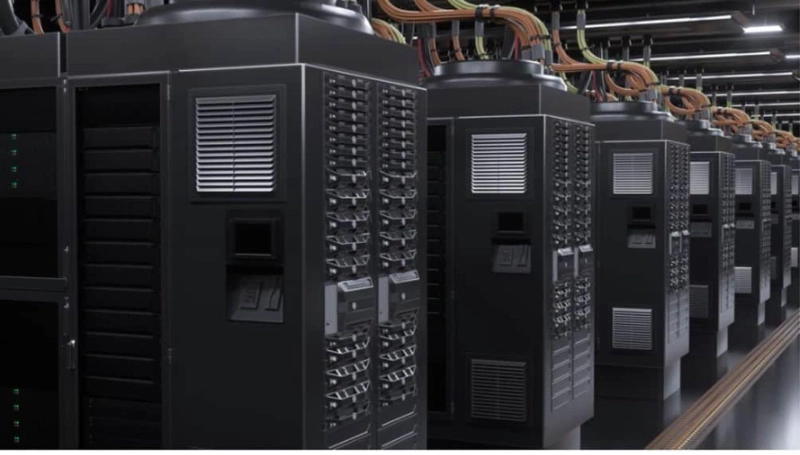Introduction:
In today\'s data-driven world, the need for reliable, scalable, and efficient storage solutions has become more critical than ever. As businesses and individuals generate and consume vast amounts of digital content, traditional storage methods often struggle to keep up. This is where Network Attached Storage (NAS) comes into the picture, offering a versatile and powerful solution for managing and accessing data across networks.
What is a NAS Appliance?
A NAS appliance is a dedicated storage device that connects directly to a network, allowing multiple users and devices to access, store, and share files. Unlike traditional external hard drives or USB storage devices, NAS appliances are designed to be always-on, providing continuous access to data over a network connection.
The Evolution of NAS Technology: From SMBs to Enterprises
NAS technology has come a long way since its inception. Initially designed for small to medium-sized businesses (SMBs), NAS appliance have evolved to cater to the needs of larger enterprises as well. Modern NAS systems offer advanced features such as data redundancy, snapshots, replication, and cloud integration, making them suitable for a wide range of use cases and environments.
Key Features and Benefits of Using a NAS Appliance
- Centralized Storage: NAS appliances provide a centralized repository for storing and accessing data, eliminating the need for scattered storage devices across multiple computers or servers.
- Easy File Sharing: With a NAS, users can seamlessly share files and collaborate on projects, regardless of their location or device.
- Data Redundancy and Protection: Most NAS appliances offer built-in data redundancy through RAID (Redundant Array of Independent Disks) configurations, ensuring data integrity and protecting against hardware failures.
- Scalability: NAS systems are designed to be easily scalable, allowing users to expand storage capacity by adding more drives or upgrading to higher-capacity models as their needs grow.
- Remote Access: Many NAS appliances come with built-in remote access features, enabling users to access their files from anywhere with an internet connection.
NAS vs. Traditional Storage Solutions: A Comparative Analysis
When compared to traditional storage solutions like external hard drives or USB drives, NAS appliances offer several advantages:
- Always-On Availability: NAS devices are designed to be always-on and accessible, ensuring that data is available whenever needed.
- Multi-User Access: Unlike external hard drives, NAS appliances allow multiple users to access and share files simultaneously, making collaboration more efficient.
- Enhanced Security: NAS systems often come with advanced security features, such as user access controls, encryption, and network security protocols, providing an added layer of protection for sensitive data.
How to Choose the Right NAS Appliance for Your Needs?
When selecting a NAS appliance, consider the following factors:
- Storage Capacity: Determine the amount of storage you need based on your current and future data requirements.
- Performance: Look for NAS devices with adequate processing power, memory, and network connectivity to ensure smooth performance.
- Scalability: Choose a NAS appliance that can easily scale up as your storage needs grow.
- Features: Consider the specific features you require, such as data backup, cloud integration, or media streaming capabilities.
Real-World Applications: How Businesses and Individuals Use NAS?
NAS appliances find applications in various scenarios, including:
- Small Business File Sharing: SMBs use NAS appliances to centralize data storage, enable file sharing, and streamline collaboration among employees.
- Backup and Disaster Recovery: NAS systems serve as an efficient backup solution, providing a centralized location for storing and protecting critical data.
- Surveillance Systems: NAS appliances are often used in surveillance setups to store and manage video footage from security cameras.
Future Trends in NAS Technology
As data continues to grow exponentially, NAS technology is expected to evolve to meet the changing needs of businesses and individuals. Some future trends in NAS include:
- Increased Integration with Cloud Services: NAS appliances will likely offer seamless integration with cloud storage providers, enabling hybrid storage solutions.
- Artificial Intelligence and Machine Learning: NAS systems may incorporate AI and ML capabilities to optimize data management, improve performance, and enhance security.
- Edge Computing: NAS appliances will play a crucial role in edge computing environments, providing localized storage and processing capabilities for IoT devices and remote locations.
Conclusion:
In an era where data is the lifeblood of businesses and individuals alike, NAS appliances have emerged as a compelling solution for efficient storage, sharing, and management of digital assets. With their scalability, reliability, and versatility, affordable NAS storage devices are poised to remain a vital component of modern IT infrastructures for years to come. As technology continues to advance, NAS appliances will undoubtedly evolve to meet the ever-changing demands of the digital landscape, solidifying their position as an indispensable tool for businesses and individuals navigating the data-driven world.



